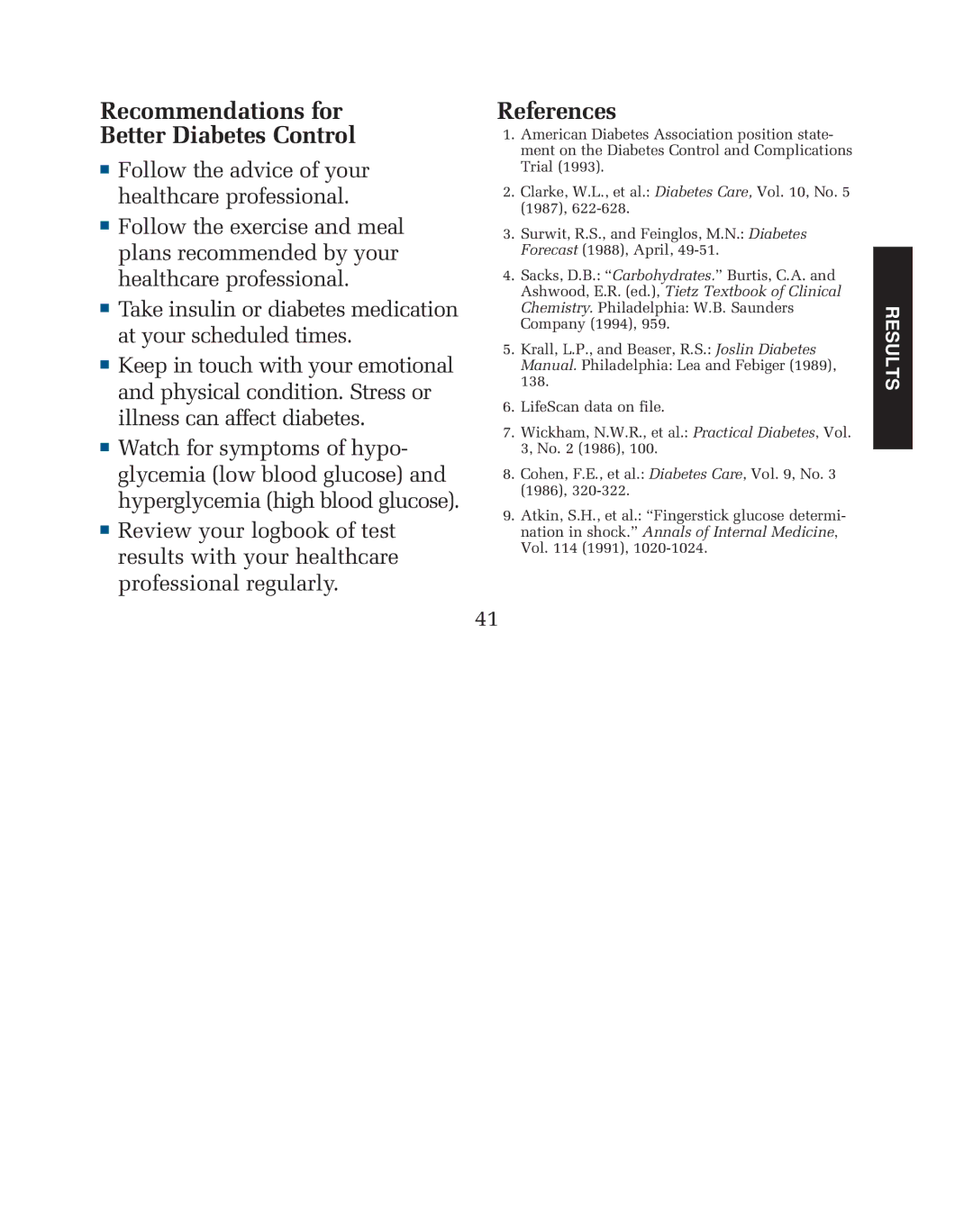
Recommendations for
Better Diabetes Control
■Follow the advice of your healthcare professional.
■Follow the exercise and meal plans recommended by your healthcare professional.
■Take insulin or diabetes medication at your scheduled times.
■Keep in touch with your emotional and physical condition. Stress or illness can affect diabetes.
■Watch for symptoms of hypo- glycemia (low blood glucose) and hyperglycemia (high blood glucose).
■Review your logbook of test results with your healthcare professional regularly.
References
1.American Diabetes Association position state- ment on the Diabetes Control and Complications Trial (1993).
2.Clarke, W.L., et al.: Diabetes Care, Vol. 10, No. 5 (1987),
3.Surwit, R.S., and Feinglos, M.N.: Diabetes Forecast (1988), April,
4.Sacks, D.B.: “Carbohydrates.” Burtis, C.A. and Ashwood, E.R. (ed.), Tietz Textbook of Clinical Chemistry. Philadelphia: W.B. Saunders Company (1994), 959.
5.Krall, L.P., and Beaser, R.S.: Joslin Diabetes
Manual. Philadelphia: Lea and Febiger (1989), 138.
6.LifeScan data on file.
7.Wickham, N.W.R., et al.: Practical Diabetes, Vol. 3, No. 2 (1986), 100.
8.Cohen, F.E., et al.: Diabetes Care, Vol. 9, No. 3 (1986),
9.Atkin, S.H., et al.: “Fingerstick glucose determi- nation in shock.” Annals of Internal Medicine, Vol. 114 (1991),
RESULTS
41
